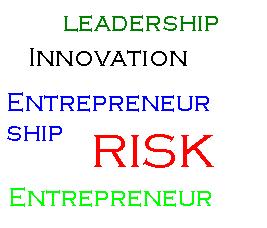The Future of Startups: Trends Shaping the Next Wave of Entrepreneurs
The Future of Startups: Trends Shaping the Next Wave of Entrepreneurs
As we navigate the ever-changing landscape of entrepreneurship, one thing is clear: the future of startups is bright, bold, and full of possibilities. The next wave of entrepreneurs is poised to make a significant impact on industries, communities, and economies around the world. But what trends will shape this new generation of startup founders? What innovations, technologies, and shifts in consumer behavior will influence their paths to success?
In this article, we’ll delve into the top trends that will define the future of startups. From emerging technologies like AI and blockchain to shifting workforce demographics and growing concerns about sustainability, these factors will play a crucial role in shaping the next wave of entrepreneurs.
1. Artificial Intelligence (AI) Takes Center Stage
Artificial intelligence has already started to transform numerous industries, from healthcare and finance to customer service and marketing. As startups continue to adopt AI-powered solutions, we can expect this trend to gain even more momentum. According to a report by Gartner, the number of businesses using AI will increase by 50% in the next two years.
AI-driven startups will focus on developing innovative applications that tackle complex problems, such as predictive maintenance, personalized medicine, and intelligent virtual assistants. As these solutions become increasingly sophisticated, we’ll see new business models emerge, including AI-as-a-service (AIaaS) platforms that make it easier for non-tech companies to integrate AI capabilities into their operations.
2. Blockchain Beyond Cryptocurrency
Blockchain technology has come a long way since its early association with cryptocurrency. Today, this secure, decentralized ledger system is being explored by startups across various sectors, including supply chain management, voting systems, and digital identity verification.
The next wave of entrepreneurs will tap into blockchain’s potential to create more transparent, tamper-proof, and efficient solutions for industries like logistics, real estate, and food safety. As the technology matures, we can expect to see increased adoption in areas like intellectual property protection, data governance, and cybersecurity.
3. The Rise of Remote Work
The COVID-19 pandemic has accelerated the shift towards remote work, forcing companies to adapt their operations and strategies. Startups are no exception, with many embracing this new reality as an opportunity to redefine traditional office cultures.
As a result, we’ll see more virtual-first startups emerge, leveraging digital communication tools and collaboration platforms to connect teams across time zones. Remote work will also lead to the development of innovative products and services catering to the needs of distributed teams, such as virtual event planning software and AI-powered language translation tools.
4. Growing Focus on Sustainability
Sustainability has become a pressing concern for consumers, governments, and businesses worldwide. The next wave of entrepreneurs is likely to prioritize eco-friendly practices and environmentally conscious product development.
Startups will focus on creating solutions that reduce waste, promote renewable energy sources, and foster circular economies. Expect increased investment in green technologies like carbon capture, sustainable agriculture, and eco-friendly packaging materials.
5. Increased Diversity in the Startup Ecosystem
The startup ecosystem is becoming increasingly diverse, with underrepresented groups making strides as founders, investors, and mentors. Women-led startups are on the rise, as are companies founded by people of color, LGBTQ+ individuals, and entrepreneurs from non-traditional backgrounds.
This growing diversity will lead to a broader range of perspectives, ideas, and solutions that address specific community needs. We can expect more startups tackling issues like healthcare disparities, financial inclusion, and educational access for marginalized groups.
6. The Gig Economy Expands
The gig economy has grown exponentially over the past decade, with an increasing number of workers engaging in freelance or part-time work arrangements. Startups are poised to capitalize on this trend by developing platforms that cater to the needs of these workers.
Expect new businesses focused on providing benefits, training, and community support for gig workers, as well as innovative payment solutions that ease financial stress and uncertainty.
7. Cybersecurity Takes Center Stage
As technology advances, cybersecurity threats have become more sophisticated and pervasive. Startups will prioritize developing cutting-edge security solutions to protect individuals, businesses, and governments from cyber attacks.
Emerging technologies like quantum computing, advanced threat detection systems, and AI-powered incident response tools will play a crucial role in shaping the future of cybersecurity.
8. Voice Technology Becomes Ubiquitous
Voice assistants have already become an integral part of many consumers’ daily lives. Startups are now working on developing more sophisticated voice-based applications that integrate with various devices and platforms.
Expect increased innovation in areas like conversational AI, voice-powered commerce, and accessible technology for seniors and people with disabilities.
9. 5G Networks Open Up New Opportunities
The rollout of 5G networks is set to revolutionize communication speeds and enable new use cases for startups. With latency times reduced by up to 90%, entrepreneurs will develop applications that require faster data transmission rates, such as immersive AR experiences, smart city infrastructure, and real-time healthcare monitoring.
10. Quantum Computing on the Horizon
Quantum computing has long been considered a distant prospect, but significant advancements in recent years indicate it’s now becoming a tangible reality. Startups are beginning to explore quantum-powered solutions for complex problems like optimization, simulation, and machine learning.
As these technologies mature, we can expect to see new startups tackling previously unsolvable challenges in areas like cryptography, climate modeling, and advanced materials science.
Conclusion
The future of startups is exciting, filled with opportunities for innovative entrepreneurs to make a lasting impact. By staying ahead of the curve on trends shaping this next wave of entrepreneurs, startup founders will be better equipped to navigate the ever-changing landscape and capitalize on emerging markets.
As you embark on your own entrepreneurial journey, remember that these trends are not isolated predictions but interconnected forces driving towards a more sustainable, equitable, and technologically advanced world. What role will you play in shaping this future?





